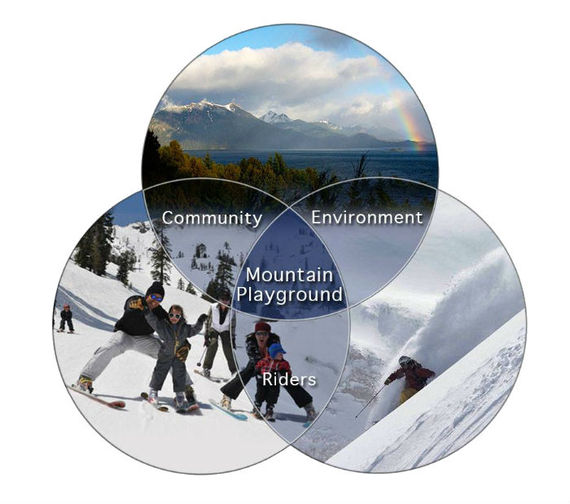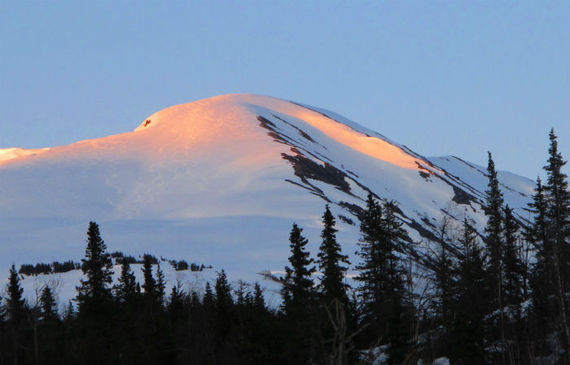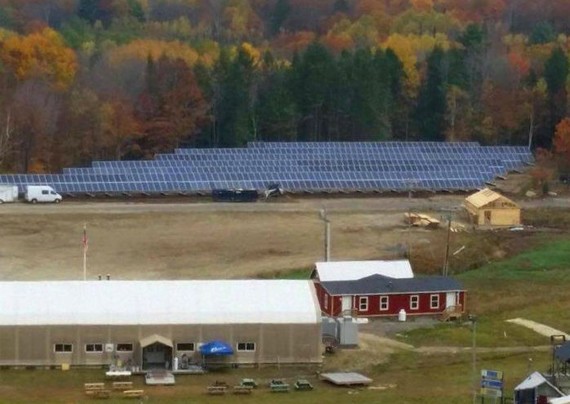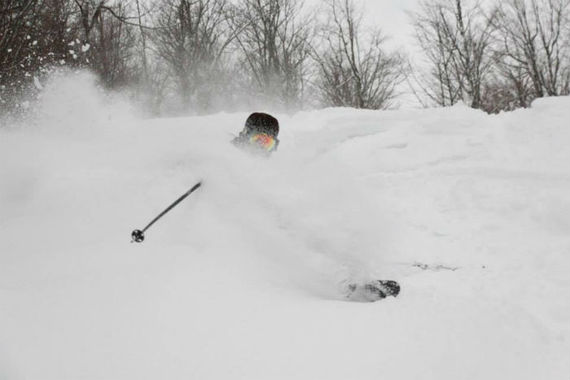Large ski areas may get most of the attention and press during the winter, but small ski areas have character, soul and passion. Small ski areas are a great place to learn to ski or snowboard, are family-friendly and have an authentic, historic vibe that remind you of what skiing used to be like. Small ski areas far outnumber their larger counterparts, and many do quite well financially.
One group of passionate snowriders is doing everything they can to help small ski areas not only survive, but thrive Mountain Riders Alliance is a group of talented individuals working with small ski areas to become "community-focused" mountain playgrounds. MRA works with existing ski hills to help them become more efficient and successful. MRA targets ski areas with "a low skier density, a passionate community, inexpensive lift ticket prices and a top-down commitment to environmental stewardship," says Jamie Schectman, co-founder and CEO of MRA. Through the intersection of the community, the environment and the customers, MRA strives to establish healthy and profitable local ski areas.
The model, as described by Jamie Schectman, founder of MRA, helps small ski areas to join together to spread expenses and share expertise, resulting in stronger and more sustainable businesses. The power is in the collective weight that multiple ski areas can bring where one ski area wouldn't be able to do it alone.
"The Mountain Playground model is a consortium of like-minded, smaller, independent ski areas that will drive down expenses through increased purchasing power, while increasing efficiencies (and profit) through best shared practices. Each ski area will remain unique to itself while practicing our core values of community, environment and riders." For example, MRA recently partnered with Payne West Insurance to spread the cost and risk of insurance premiums, which are typically quite high for small ski areas.
Mountain Riders Alliance works with geographically diverse group of hills, from Mt. Abram in Maine (their prototype ski area) to Mt. Ashland in Oregon. MRA is also assisting in opening (or re-opening) two other ski areas: Manitoba Mountain in Alaska and Antelope Butte in Wyoming.
Environmental Sustainability
Environmental sustainability is critical to the MRA philosophy. In November of 2014, Mt. Abram completed the installation of a 245 kW photovoltaic solar project, which is projected to generate 70% of the ski area's annual electricity consumption. The area was awarded a $235,000 grant from the Rural Energy for America Program to partially fund the project. Additionally, Mt. Abram has been replacing snow guns with low energy guns since 2010. The National Ski Areas Association honored Mt. Abram as one of three winners of the Golden Eagle Award for Environmental Excellence in 2012.
Community Focus
Fostering a strong relationship with the local community is also an essential component of the MRA model. "It sounds simple, but making a concerted effort to have a stronger community focus goes a long way," says Schectman. "Having a dedicated group sales and events coordinator on staff is well worth that person's salary."
Examples of the engagement with the local community include offering school and other youth programs, encouraging the local winter sports culture, being involved in charitable fundraisers, and working with other groups like seniors, women, businesses, and Nordic skiers. Being a good partner in the local community enhances the ski area's reputation and solidifies the relationship with its customers.
Year-Round Business
Winter is not the only season of focus for MRA and its ski areas. Summer opportunities contribute to a strong, year-round business. Like many other mountain areas, small ski areas are considering the best summer options that have the best fit for their operation.
"Live music, weddings, retreats and competitions and lower barrier to entry holistic recreation opportunities like zip lines, mobile climbing wall, scenic chairlift rides and other non-theme park like outdoor activities," commented Schectman. Mountain biking, hiking, geocaching and disc golf are also potential areas for small ski areas to offer low-impact recreation and a venue for healthy outdoors activities.
Small ski areas are critical to the future of the ski industry. If you're lucky enough to live close to one, you're probably familiar with the charms of a small hill. Even if you typically visit large ski resorts, chances are that there is a smaller hill nearby.
If you listen closely, you might even hear the sounds of kids laughing, parents shouting words of encouragement, and snowriders trading tales over a local beer on the sun-splashed deck, reminiscing about their day ripping laps on the upper mountain.
By Dave Belin / @Rrcdave



